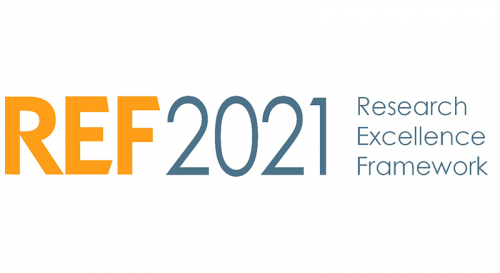
Breadcrumbs navigation
What is International Relations?
If you’ve come to this page, you probably want a straight answer. But defining an academic discipline and the things it is concerned with is no easy matter. And this isn’t just because people disagree. The fact is, an answer to the question posed in the masthead is as elusive as it is controversial. The stuff of international relations is vast in scope and ever-changing. So how might we make sense of it? The headings below don’t provide a definitive reply, but they do offer food for thought.
International Relations and international relations
Are we being pedantic or do capital letters really matter? International Relations (IR – upper case) is usually taken to mean the subject or academic discipline dedicated to the study and teaching of …. wait for it ….. international relations (lower case). That discipline is sometimes also referred to as International Politics, Global Politics or World Politics, but IR tends to be the term most commonly used. Its lower-case content is where things get messy. At its simplest, international relations consists of the interactions of states (in diplomacy, foreign policy and trade), the resort of those states to violence (in war) and their cooperation in institutional formats (in international organisations like the United Nations). In this definition, the great powers loom large (the United States and China carry more weight in the world than do, say, Fiji or Mozambique) and the world turns on the key episodes or issues which determine their relations (just check out the number of books written on the Cuban missile crisis or the end of the Cold War). If this was all that IR studied it would be fascinating enough. But the discipline would also be incomplete. It would not be a reliable window on the world. In fact, international relations (lower case) contains huge, even bewildering variety. States are not its only actors: think also of the influence of big multinational companies such as Google and Apple or terrorist groups such as ISIS and Al-Qaeda. War and peace, diplomacy and trade are not the only issues that matter: think also of climate change, migration and human rights. And material interactions are not necessarily what drives events: ideas also count. Fascism, communism, liberal democracy, and the world’s great religions have all had global consequence.
Discipline and practice
To cope with this variety, IR now has a very wide focus and a considerable collection of sub-disciplines. There is no easy way to catalogue these. But as a start, take a look at the different sections or working groups of professional associations such as the International Studies Association (ISA) in the US, the British International Studies Association (BISA) and the European International Studies Association (EISA). Take a look also at the contents of some sub-disciplinary journals – Security Studies, Review of International Political Economy, Foreign Policy Analysis or International Political Sociology.
Amidst all this diversity, what makes IR as a discipline hang together? IR has generalist journals as well as specialist ones, its professional associations gather people who identify as a broad, like-minded community, and many universities have departments and degree programmes dedicated to a defined, benchmarked and regulated subject called IR. That subject can, therefore, make a credible claim to disciplinary independence and good standing.
But more than this, IR has an intellectual coherence. Most IR scholars hold a common awareness of theoretical and methodological positions. They do, however, disagree on which of these positions matter more. Such disagreements are often referred to as the ‘great debates.’ The first of these – between realism and idealism – is perhaps the easiest to understand. The debates since, by contrast, can appear abstract and abstruse. These are not debates about the merits of Brexit or American foreign policy, but concern the competing claims of positivism and post-positivism, of rationalism and reflectivism, and of traditionalism and behaviouralism. The discipline of IR also has a shared ontology. This is a slippery notion but is meant here as a discipline’s core distinguishing feature, its intellectual frame of reference. For IR, that ontology is the properties of the international – although in defining what makes up those properties scholars are again divided. Is it the condition of anarchy (that is, the absence of international government)? Is it relations of inter-dependence and globalisation? Or is it, rather, the co-existence of multiple groups (states, nations, societies) operating across boundaries?
Such intellectual controversies might keep IR scholars awake at night but they rarely trouble practitioners of international relations in the so-called ‘real world’ – the politicians, activists, officials and volunteers who make, implement and seek to shape policy. This is not to say that academics don’t exert influence. A good deal of IR scholarship is applied and has practical insight. Some academic journals – International Affairs and Survival in the UK or Foreign Affairs in the US – are published precisely to harness that insight. Some IR scholars also make it their business to blog, tweet, and broadcast their work so as to inform public debate and public policy. And in the US, it is common for academics to move from university to government and back again (just think of Henry Kissinger’s career trajectory or, more recently, Samantha Power). Any grant-holding academic working in the UK, meanwhile, will be aware of the need to demonstrate ‘impact’ in their research.
Such efforts are a counter to the charge of policy irrelevance. And while it remains the case that some work in IR is obscure even obscurantist, take a look at other subjects. Economics, for instance, has had a much harder time recently. In the face of global financial crisis it has been charged with being not only irrelevant but plain wrong as its forecasts and policy prescriptions have foundered. IR, by contrast, is still in rude health.
Engagement and reflection
A lot of work in IR might be regarded as empirical, policy neutral and technical in presentation – concerned more with description and explanation than advocacy and prescription. But IR is also a discipline with strong ethical and normative concerns. It was organised in response to World War One and so has long sought to explain why war occurs, how it can be avoided and why in some circumstances it might still be necessary. The concern with war has not gone away, even if its focus has shifted more to wars within states than between them. Other concerns also loom large. In a world that is diverse but unequal, where plenty sits alongside poverty, and where security for some is matched by the insecurity of others, scholars have much to contemplate. How might inequalities be addressed? What structures or institutions facilitate change or stand in its way? And how does thinking within the IR discipline itself aid or stifle progress?
This last question points to the importance of disciplinary self-reflection. It is no accident that the most read and most-cited article in Review of International Studies – the BISA house journal – is Ken Booth’s ‘Security and Emancipation’, a piece which expressly argues for innovative thinking in the research and teaching of IR. In fact, in IR the conventional categories of the Social Sciences - ‘state’, ‘security’, ‘institution’ and so on – have never stood still. Hierarchies of status and power – of class, race, and gender – have also been subject to close and critical attention. And IR has given space to the investigation of (de)colonialism, development, modern slavery, and people trafficking, so elevating the concerns of marginalised and neglected groups. With that move, the IR profession, still centred on Europe and North America, has also developed greater connections to scholars who live and work in the global south.
Scholars and students
IR is an academic discipline, but the university departments which foster the subject don’t just incubate great works of scholarship. Their principal purpose, let’s not forget, is to teach. And it’s a great time to study international relations. The diversity and controversy described above make it an exciting, vibrant – and yes, relevant subject for those wanting to understand the changing world around them. Those qualities provide an energy that can be harnessed by both teachers and students alike. To take just one example, simulations such as Model United Nations show how the controversies that attend international politics can be translated straight into the classroom or conference venue. This makes for an exciting and memorable student experience.
If you share that sense of excitement and want to find out more about the study of IR, take a look at our companion piece on ‘Why Study International Relations?’
Author
Mark Webber is Professor of International Politics at the University of Birmingham and Chair (2019-2020) of the British International Studies Association.


